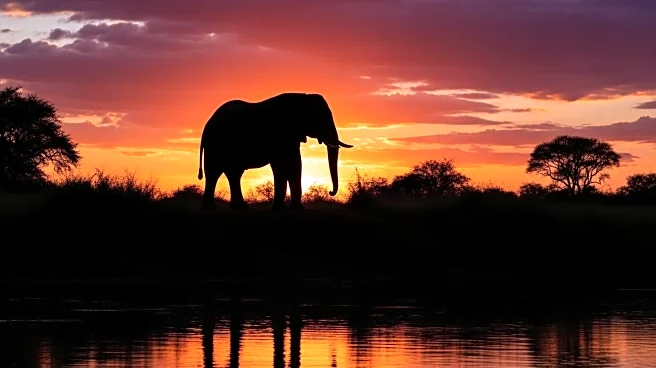What's Happening?
Chad has decided to withdraw the mandate from African Parks, a non-profit conservation group associated with Prince Harry, to manage its wildlife reserves. The decision was announced by Environment Minister Hassan Bakhit Djamous, who accused African Parks of showing a 'recurring indelicate and disrespectful attitude toward the government.' The minister also cited a resurgence in poaching and a lack of investment in the reserves managed by the group. This move ends a 15-year partnership aimed at leading anti-poaching efforts and restoring elephant populations at the Ennedi Natural and Cultural Reserve and the Greater Zakouma Ecosystem. African Parks has expressed its intention to engage in discussions with the government to better understand its position and explore ways to continue supporting conservation efforts.
Why It's Important?
The withdrawal of African Parks' mandate is significant as it highlights the challenges faced by conservation efforts in regions plagued by poaching and insufficient investment. The decision could impact the progress made in increasing elephant populations and other conservation achievements in Chad. African Parks has been known for its efficient management of wildlife areas, often stepping in where local governments struggle due to poverty, corruption, and conflict. The loss of their mandate may lead to setbacks in conservation efforts, affecting biodiversity and the ecological balance in the region. This development also underscores the complexities of international conservation partnerships and the need for effective collaboration between governments and non-profit organizations.
What's Next?
African Parks is currently in talks with the Chadian government to understand its position and explore potential paths forward. The organization aims to continue its conservation efforts in Chad, despite the setback. The outcome of these discussions could determine whether African Parks will regain its mandate or if new strategies will be implemented to address the government's concerns. Stakeholders in conservation and wildlife management will be closely monitoring the situation, as it may influence future partnerships and conservation strategies in other regions facing similar challenges.
Beyond the Headlines
The situation in Chad raises broader questions about the ethical and operational challenges faced by conservation groups working in foreign countries. The allegations of disrespectful attitudes and human rights abuses by park guards in other regions managed by African Parks highlight the need for accountability and transparency in conservation efforts. This incident may prompt a reevaluation of how conservation groups operate and interact with local communities and governments, potentially leading to more stringent oversight and ethical guidelines in the sector.









